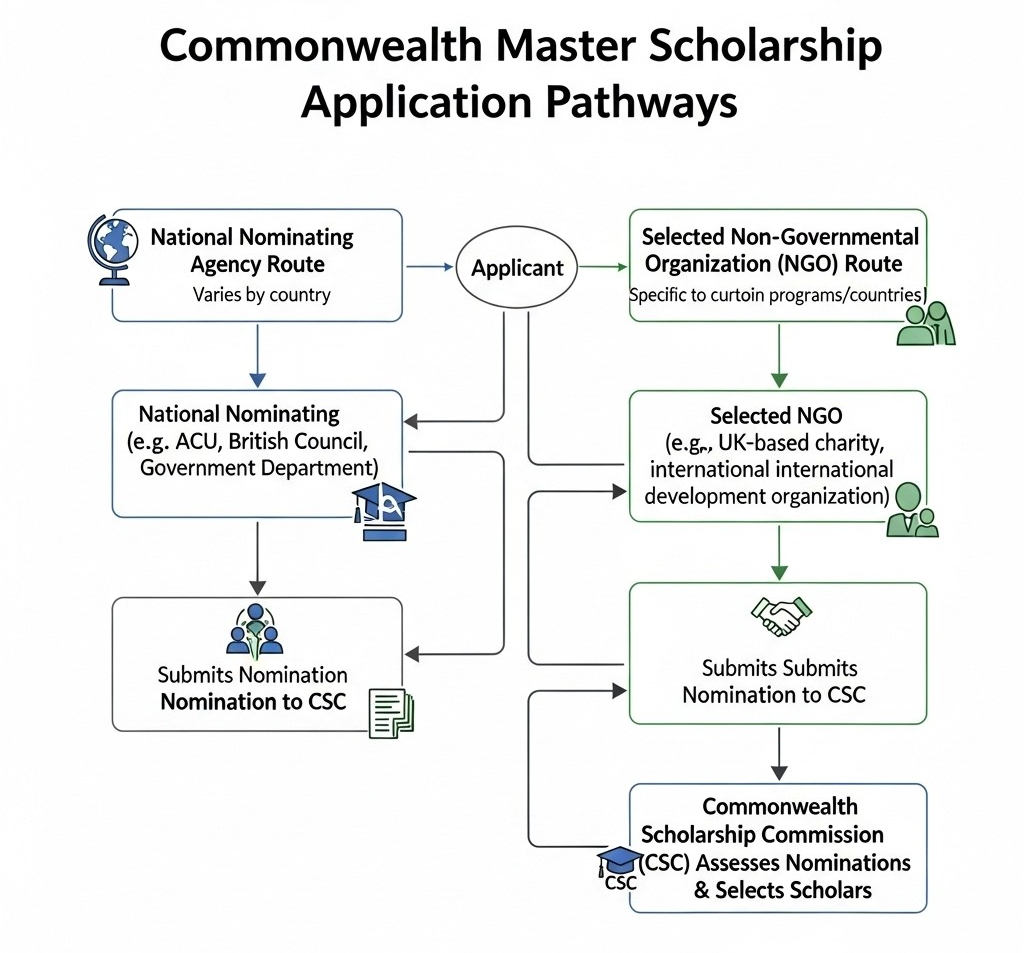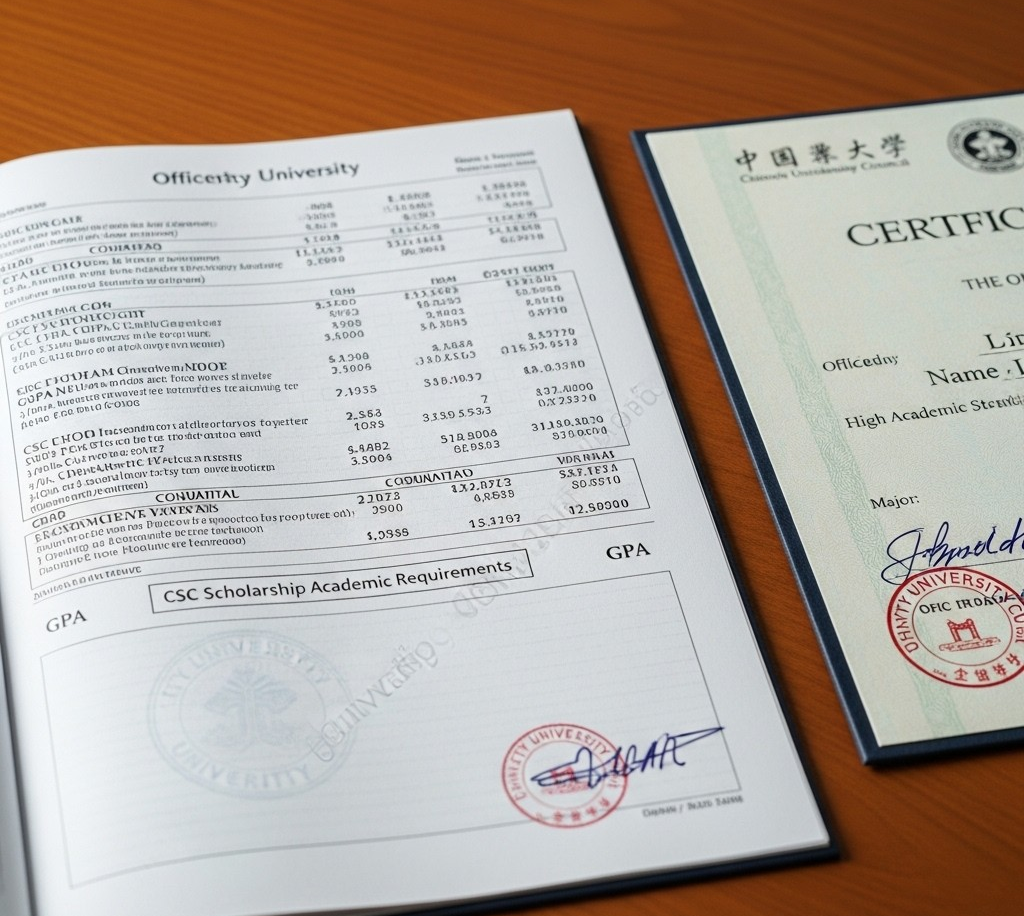Dreaming of pursuing a Master’s degree in the UK without the crushing weight of tuition fees? The Commonwealth Master Scholarship 2026 might just be your golden ticket. This prestigious award offers a life-changing opportunity for talented individuals from across the Commonwealth to gain skills and knowledge at top UK universities. But before you get lost in visions of historic campuses and rainy London afternoons, there’s a crucial first step: understanding the eligibility criteria. This guide will break down everything you need to know, making the process clear, manageable, and far less intimidating.

Commonwealth Master Scholarship 2026
| Key Aspect | Detail | Why It Matters |
| Funding | Fully funded: Covers tuition, airfare, and living stipend. | This makes it one of the most comprehensive scholarships available, allowing you to study in the UK for free. |
| Host Country | United Kingdom | Gain a world-class education and immerse yourself in a rich, multicultural environment. |
| Eligible Fields | Aligned with six CSC Development Themes. | Your chosen course must relate to specific global development challenges. |
| Core Requirement | Inability to afford UK study without the scholarship. | This award is aimed at those with outstanding potential who lack the financial means. |
Meeting the Commonwealth Master Scholarship 2026 eligibility criteria is the first, most critical step on an exciting journey. It requires more than just academic talent; it demands a clear vision for development, a genuine financial need, and a passionate commitment to creating a better future for your home country.
Understanding the Scholarship’s Soul
Before we dive into the nitty-gritty of the requirements, it’s important to grasp the ‘why’ behind this scholarship. The Commonwealth Scholarship Commission (CSC) isn’t just looking for the brightest minds; they are searching for future leaders who will return to their home countries and make a real-world impact. Every part of the eligibility criteria is designed to identify these individuals. Keeping this mission in mind will help you frame your entire application with purpose and passion.
Navigating the Commonwealth Master Scholarship 2026: Core Eligibility
Think of the eligibility criteria as a series of checkpoints. You need a green light at each one to move forward. While the official guidelines for the 2026 cycle will be released closer to the date, they have remained consistent for years. This guide is based on the most recent criteria, giving you a powerful head start.
1. Nationality and Residency: The First Checkpoint
This is the most straightforward rule. To be eligible, you must be a citizen of or have been granted refugee status by an eligible Commonwealth country. You must also be a permanent resident in that country.
This isn’t a scholarship for diaspora members living elsewhere. You need to have strong, current ties to your home nation, as the ultimate goal is for you to contribute to its development after your studies.
2. Academic Excellence: Your Foundation for Success
The Commonwealth Scholarship is highly competitive, so a strong academic record is non-negotiable.2
- You must hold an undergraduate honours degree of at least upper second-class (2:1) standard.3
- If your university uses a different grading system, you’ll need to check the equivalent.
- In some cases, a lower second-class (2:2) degree might be considered if you have significant and relevant postgraduate experience.

3. The ‘No UK Study’ Rule: A Crucial Detail
The scholarship aims to provide an opportunity that you wouldn’t otherwise have.Therefore, you are generally not eligible if you have previously studied or worked for one academic year or more in a high-income country. The CSC provides a list of countries they consider high-income, so be sure to check it carefully. This rule ensures the awards go to those who haven’t already had similar international exposure.
4. Demonstrating Financial Need: The Heart of the Matter
This is a cornerstone of the CSC scholarship requirements. You must be able to prove that you would not be able to afford to study in the UK without the scholarship. You’ll be asked to sign a declaration and may need to provide supporting details in your application.
Aligning Your Goals with CSC Development Themes
Simply having great grades isn’t enough. Your application must be intricately linked to one of the six CSC Development Themes. This shows the selection committee that you have a clear vision for how your UK Master’s degree will translate into tangible positive change back home.
The Six Key Themes
Your chosen course and future aspirations must align with one of these critical areas:
- Science and technology for development
- Strengthening health systems and capacity
- Promoting global prosperity
- Strengthening global peace, security and governance
- Strengthening resilience and response to crises
- Access, inclusion and opportunity
How to Weave Your Story into a Theme
Don’t just pick a theme that sounds good. You need to demonstrate a deep, authentic connection.
- Your Course: The Master’s program you choose should directly equip you with skills relevant to your chosen theme. For example, if you choose ‘Strengthening health systems’, a Master’s in Public Health is a clear fit.
- Your Experience: Connect your previous work, volunteer activities, or academic projects to the theme.
- Your Future: Most importantly, articulate a clear and realistic plan for how you will use your new knowledge to address a specific problem in your home country related to that theme. I’ve seen many successful applicants pinpoint a very specific local issue they are passionate about solving.
Your Application Pathway: Nominating Agencies & NGOs
You cannot apply directly to the CSC for this scholarship. You must apply through one of two main routes:
- National Nominating Agencies: This is the most common route. Each eligible country has its own agency, usually a Ministry of Education or a university grants commission.1They are responsible for the initial selection and nomination of candidates. You must check their specific deadlines and requirements, which may be much earlier than the CSC’s deadline.
- Non-Governmental Organisations (NGOs) and Charitable Bodies: A select number of NGOs and charities can also nominate candidates. This is a less common route but can be an option if your work is closely aligned with one of these organizations.

Your Ultimate Guide to European Scholarships 2026-2027 (BS, MS, PhD)
FAQs
Q1:Can I apply for the Commonwealth Scholarship if I am in my final year of study?
Yes, you can apply while you are in your final year. However, you must provide proof that you have completed your degree and have met the academic requirement before the scholarship can be confirmed, typically by the time the course starts.
Q2:What does it mean to be ‘unable to afford’ study in the UK?
This means that without the scholarship’s funding for tuition, living expenses, and travel, you and your family would not have the financial resources to cover the costs of a Master’s degree in the United Kingdom. You will need to formally declare this as part of your application.
Q3:Is work experience mandatory for the Commonwealth Master Scholarship?
While not always a strict requirement listed under Commonwealth Scholarship eligibility, relevant work experience can significantly strengthen your application. It provides concrete evidence of your commitment to your chosen development theme and your potential to be a leader in your field upon your return home.










